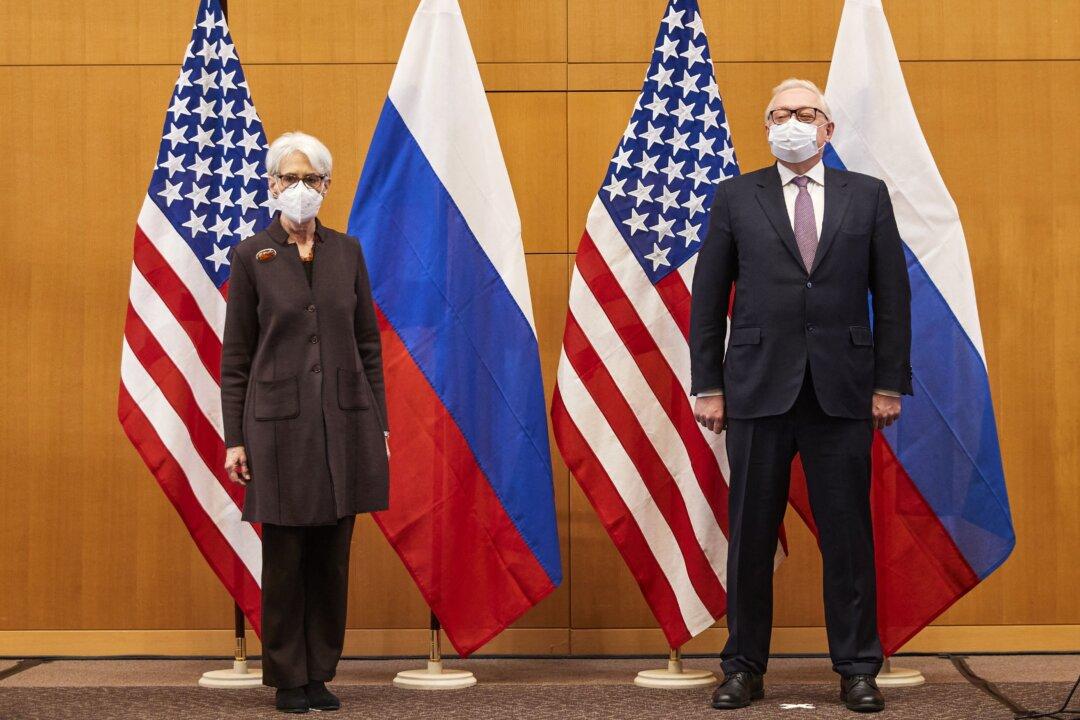MOSCOW—The Kremlin on Thursday gave a bleak assessment of Russia’s security talks with the United States and NATO this week, describing them as “unsuccessful” and saying there was disagreement on fundamental issues.
Kremlin spokesman Dmitry Peskov also said Moscow viewed a sweeping sanctions bill unveiled by U.S. Senate Democrats “extremely negatively” and that its timing meant it looked like an attempt to put pressure on Moscow.





